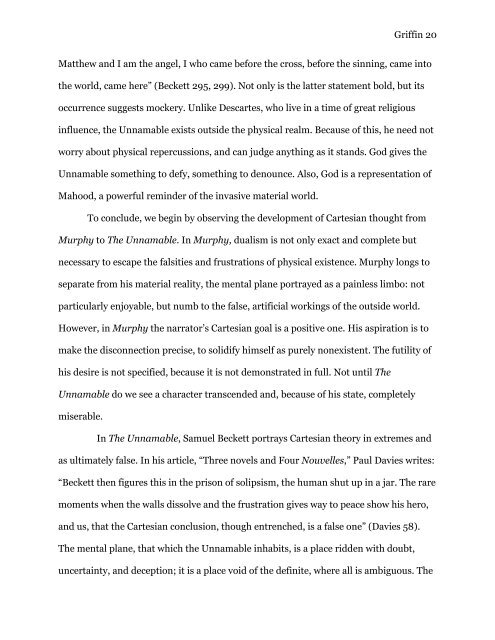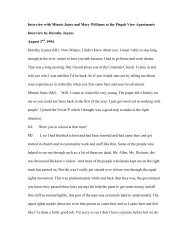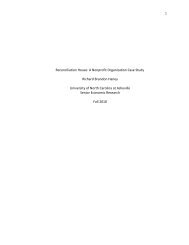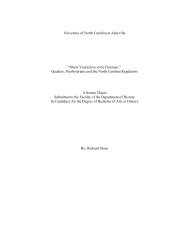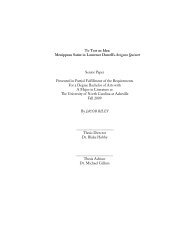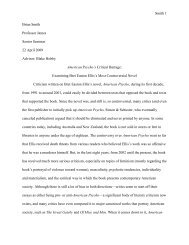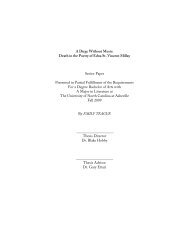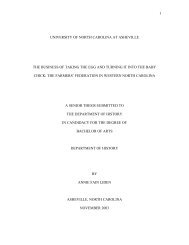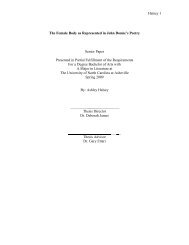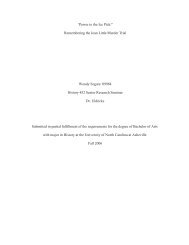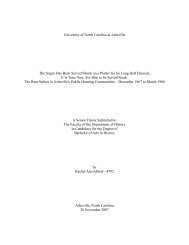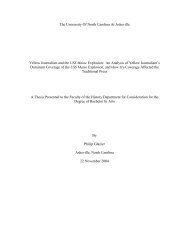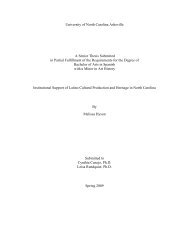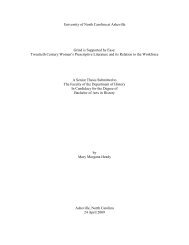Cartesian Thought in Samuel Beckett's The Unnamable
Cartesian Thought in Samuel Beckett's The Unnamable
Cartesian Thought in Samuel Beckett's The Unnamable
- No tags were found...
You also want an ePaper? Increase the reach of your titles
YUMPU automatically turns print PDFs into web optimized ePapers that Google loves.
Griff<strong>in</strong> 20Matthew and I am the angel, I who came before the cross, before the s<strong>in</strong>n<strong>in</strong>g, came <strong>in</strong>tothe world, came here” (Beckett 295, 299). Not only is the latter statement bold, but itsoccurrence suggests mockery. Unlike Descartes, who live <strong>in</strong> a time of great religious<strong>in</strong>fluence, the <strong>Unnamable</strong> exists outside the physical realm. Because of this, he need notworry about physical repercussions, and can judge anyth<strong>in</strong>g as it stands. God gives the<strong>Unnamable</strong> someth<strong>in</strong>g to defy, someth<strong>in</strong>g to denounce. Also, God is a representation ofMahood, a powerful rem<strong>in</strong>der of the <strong>in</strong>vasive material world.To conclude, we beg<strong>in</strong> by observ<strong>in</strong>g the development of <strong>Cartesian</strong> thought fromMurphy to <strong>The</strong> <strong>Unnamable</strong>. In Murphy, dualism is not only exact and complete butnecessary to escape the falsities and frustrations of physical existence. Murphy longs toseparate from his material reality, the mental plane portrayed as a pa<strong>in</strong>less limbo: notparticularly enjoyable, but numb to the false, artificial work<strong>in</strong>gs of the outside world.However, <strong>in</strong> Murphy the narrator’s <strong>Cartesian</strong> goal is a positive one. His aspiration is tomake the disconnection precise, to solidify himself as purely nonexistent. <strong>The</strong> futility ofhis desire is not specified, because it is not demonstrated <strong>in</strong> full. Not until <strong>The</strong><strong>Unnamable</strong> do we see a character transcended and, because of his state, completelymiserable.In <strong>The</strong> <strong>Unnamable</strong>, <strong>Samuel</strong> Beckett portrays <strong>Cartesian</strong> theory <strong>in</strong> extremes andas ultimately false. In his article, “Three novels and Four Nouvelles,” Paul Davies writes:“Beckett then figures this <strong>in</strong> the prison of solipsism, the human shut up <strong>in</strong> a jar. <strong>The</strong> raremoments when the walls dissolve and the frustration gives way to peace show his hero,and us, that the <strong>Cartesian</strong> conclusion, though entrenched, is a false one” (Davies 58).<strong>The</strong> mental plane, that which the <strong>Unnamable</strong> <strong>in</strong>habits, is a place ridden with doubt,uncerta<strong>in</strong>ty, and deception; it is a place void of the def<strong>in</strong>ite, where all is ambiguous. <strong>The</strong>


